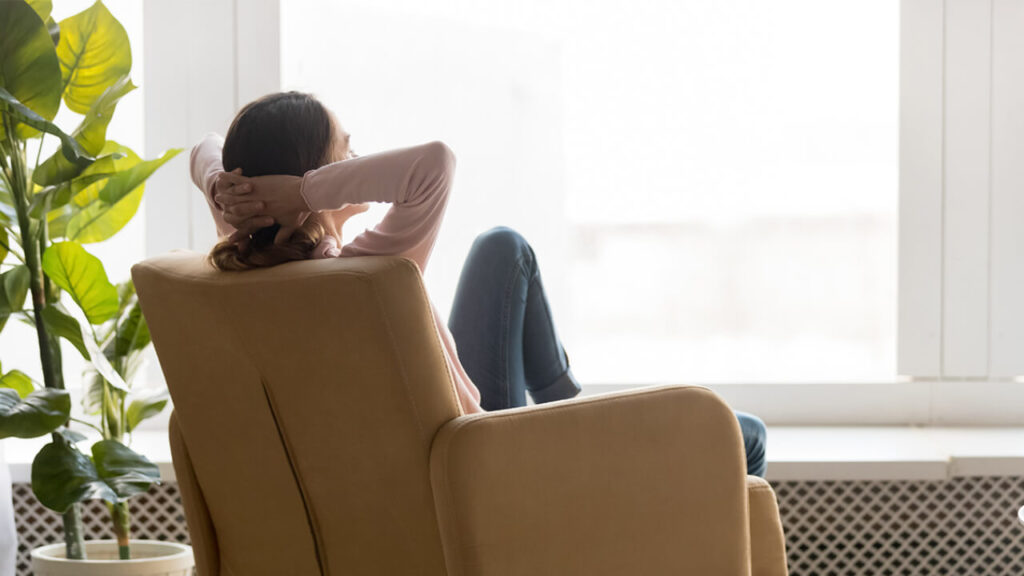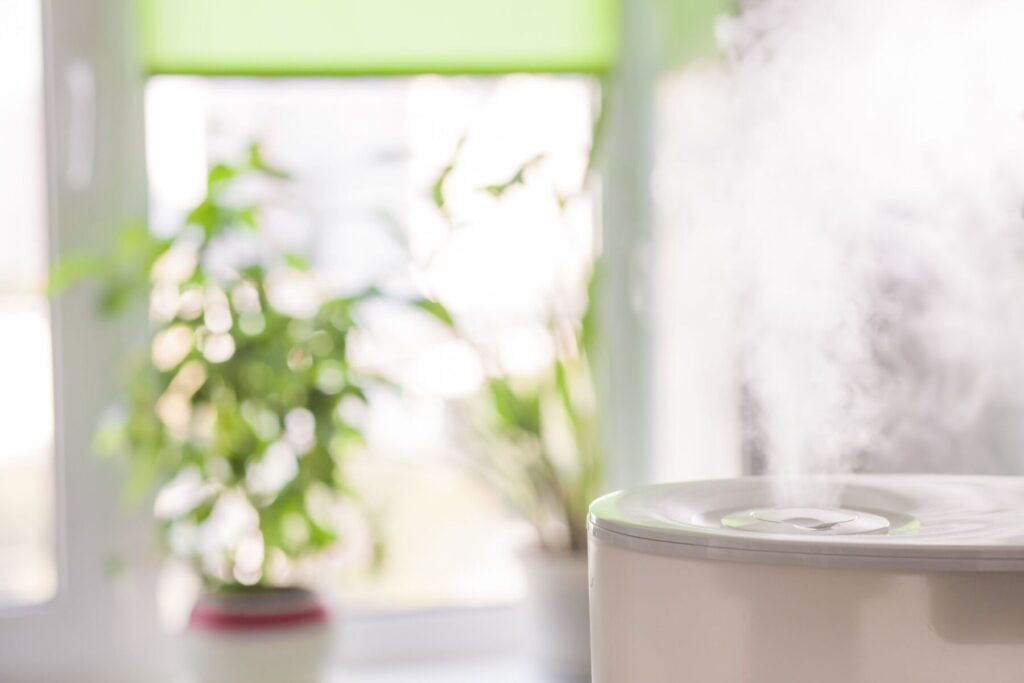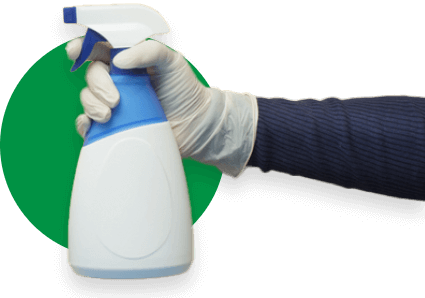The COVID-19 pandemic changed the way we think about air quality in public spaces. Poor indoor quality significantly increases the risk of transmitting respiratory viruses, especially in crowded or high-traffic areas. As such, proper ventilation is one of the most effective ways to slow the spread of airborne diseases like COVID.
For businesses, proper ventilation should be a top priority. Poor air quality can affect both employees’ and customers’ equality. This can lead to staffing issues if a respiratory virus is spread through the employees. It can also become a public health issue if guests and customers are spreading illnesses in and around your business.
This is not something that any business wants to be responsible for. The best way to avoid it is regular disinfectants and proper ventilation for improved airflow. There are steps you can take to maintain good air quality on your own. In addition, businesses can also hire commercial disinfecting services for deep cleaning and improved air quality.
Not sure where to begin. Read this guide to learn how to disinfect the air in your building or your home.
The Importance of Having Clean Indoor Air
As the COVID-19 pandemic unfolded in 2020, we slowly began to learn more about how the virus was transmitted. COVID, like many other respiratory viruses, is primarily spread through airborne transmission. This simple fact is what necessitated the strict lockdowns we all faced in the early days of the pandemic. The less crowded our public spaces, the fewer cases of COVID-19 we would have.
As the world has opened back up in the years following the COVID-19 pandemic, the importance of air quality and ventilation has been magnified. Failure to maintain the indoor air quality in public spaces can dramatically increase the risk of spreading respiratory viruses. Even if the illness is less severe than COVID, preventing the spread of airborne disease is always good for public health.
The general public is allowed to enjoy public spaces without health or safety concerns. And, in cases involving serious diseases like COVID-19, proper ventilation can help to avoid future lockdowns and pandemics.

How Frequent Air Disinfection Benefits Everyone
Good indoor air quality has been shown to offer several notable benefits in addition to slowing disease transmission. Disinfecting the air in your home or business can improve your day-to-day life and overall health. Here are some of the most notable benefits of frequent air disinfection.
Reduces Respiratory Problems
Everybody deals with respiratory problems to some extent. Whether it’s seasonal allergies, asthma, or something else, air quality affects our respiratory systems. All of these problems can be reduced with clean air. Proper ventilation and air disinfection reduce the level of allergens and irritants in the air we breathe. Whether you suffer from serious respiratory problems or mild allergies, good air quality can improve your quality of life.
Better Cognitive Health
Would you believe that clean air is good for your brain, too? Our brains rely on a steady flow of oxygen in order to function at peak efficiency. Long-term exposure to heavily polluted air can actually result in cognitive decline. By emphasizing clean air indoors, we can improve our cognitive health in both the long and short term. Not to mention, it is simply harder to focus in a stuffy room with poor air quality.
Creates A Stress-Free Environment
Studies have shown that cleanliness is linked to reduced stress levels. Being surrounded by clutter tends to make people pressured and disorganized. Similarly, poor air quality can cause stress, anxiety, and reduced focus. All of these things can quickly add up to create a less healthy and productive home or work environment. Clean air is just one important step to ensuring a clean home or workspace.
Improves Immunity
Being exposed to poor air quality means our immune systems need to work a little bit harder all the time. If we learned anything from the COVID-19 pandemic, it’s that a healthy immune system is essential to our well-being. Disinfecting the air should be treated the same as sanitizing surfaces, washing our hands, and eating healthily when it comes to our immune health. Even if we’re not exposed to respiratory viruses, air filtration boosts our immune system. This makes it easier to fight off diseases when we do get sick.
3 Disinfecting Methods for Clean Indoor Air
Having clean air is obviously very important for a number of reasons. But some people may be wondering, “Can you disinfect air?” The answer to that is yes. There are a few methods that you can use to disinfect the air and improve indoor air quality. Some make use of basic utilities, while others require specialized equipment. Here are some of the best tips on how to sanitize the air indoors.
Proper Air Ventilation
The simplest way to disinfect the air is to maintain good air movement. Proper ventilation ensures that dirty air is filtered out, while clean air can circulate through the room.
Airflow is measured in Air Changes per Hour (ACH), which is the number of times that a volume of air equals that of the room filters in and out over the course of one hour. In hospitals and healthcare settings, the CDC recommends 6 to 12 air changes per hour.
However, other settings don’t require as much airflow. With that said, each ACH reduces the number of airborne contaminants in the room. Running your HVAC system with the fan on is the simplest way to ensure good air movement indoors.
Air Filtration with HEPA Filters
HEPA stands for “High-Efficiency Particulate Air”, and refers to a special type of air filter that removes pollutants and viruses from the air. Running air filters with HEPA filters is another great and simple step to improve indoor air quality. Basic household air filters are effective in small spaces.
For public spaces, larger air filters may be necessary to ensure sufficient airflow. HEPA furnace filters are also available for improved air circulation throughout the building. This method is effective because it requires minimal work or installation. Air filtration occurs naturally throughout the day.
Sterilization with UV-C Lights
One of the most advanced methods of air sanitization is the use of UV-C lights. This method became popular in some settings during the COVID-19 pandemic. UV-C lighting is effective at killing pathogens like viruses and bacteria. While this is very effective at sterilizing air, UV-C lighting is difficult to install. As a result, UV-C lights are expensive and require professional installation.

How to Improve and Maintain Indoor Air Quality
Having proper ventilation and filtration systems is essential to maintaining good indoor air quality. But these are not the only steps required if you want excellent air quality all the time. Here are some of the most important steps you can take to maintain the good air quality in your home or business.
Maintaining a Level of Humidity
High humidity levels cause stuffy air and can also increase the rate of mold and mildew growth. Both of these things are bad for air quality. If you live in a humid environment, using a dehumidifier is a simple, but essential, step for improved air quality. Opening the windows and using fans can also help humid air circulate out of the room more quickly as well.
Daily Cleaning Routines
Basic daily cleaning can improve air quality in the long run by reducing the amount of dust in the air. Every time we wipe down surfaces, vacuum, or sweep we are removing small amounts of pathogens from the room. This may not seem like much, but it adds up over time. If you can stick to a daily cleaning routine, your indoor air quality will remain good over time.
Deep Cleaning Services
While a consistent cleaning routine is important, sometimes deep cleaning is needed in order to tackle tough jobs. Professional deep cleaning services offer a wider range of cleaning for tasks that require more work or professional equipment.
Deep cleaning services offer thorough cleaning, disinfecting, and sanitizing of floors, windows, furniture, and more. Specialized cleaning services can also be used to clean equipment like vents, air ducts, and furnace filters.
Deep cleaning and daily cleaning habits complement each other very well. Your daily cleaning habits reduce the work required during deep cleanings. Each deep cleaning service, meanwhile, reduces the amount of daily cleaning required. Both go hand-in-hand to improve sanitation and air quality.
Frequently Asked Questions
What kills the germs present in the air?
Airborne germs can be killed with a few different methods. UV-C lights are one of the more advanced methods to kill airborne pathogens quickly. However, proper ventilation is a more accessible method that is also highly effective at removing germs.
How do you disinfect naturally?
The best way to naturally disinfect the air in your home or workplace is to improve ventilation. Using a HEPA furnace filter is also a great way to improve air quality with no additional work.
What is the most effective disinfection method?
The most effective way to disinfect the air is to perform routine cleanings and make sure that airflow is not restricted in any room.
What are the 3 types of disinfection?
The three main types of air disinfection are proper ventilation, air filtration, and UV-C lighting.
What are the steps to disinfect?
The most important steps to disinfect indoor air are ventilation and filtration. The first step is often to run your building’s HVAC system with the fan on. If possible, you should also open any windows to improve airflow. Installing HEPA air filters is also a crucial step for removing allergens and pathogens from the air. Lastly, you might also consider using a dehumidifier to reduce indoor humidity levels.
Want to Learn More About How to Disinfect the Air At Your Business?
Indoor air quality is a matter of public safety. On top of that, it is also simply essential for maintaining a good work environment. Clean air means healthier employees, less stress, and greater focus. It also means fewer sick days and a reduced risk of public health concerns. While it may be easy to overlook, air disinfection should always be prioritized in any industry.
If you are looking for high-quality disinfecting services for your business in the Dallas-Fort Worth area, Dallas Janitorial Services can help. Dallas Janitorial is one of the region’s most trusted commercial cleaning companies thanks to our dedication and expertise. If your business is in need of disinfecting services, contact us to receive a free quote.


